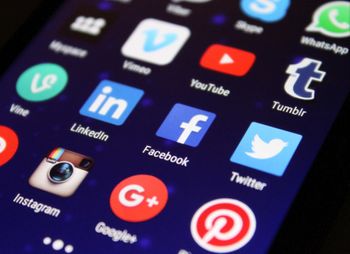It’s no secret that social media has become a significant part of our lives. Young people are now more connected to their phones than the people around them, and it can be difficult for parents to understand how social media affects their children. The relationship between depression and social media is complex, but there are some clear connections between the two – with young adults being particularly at risk.
Depression is a general term used to describe feelings of sadness, loss of interest or pleasure, feelings of guilt or low self-worth, disturbed sleep or appetite, and poor concentration.
Depression is defined as “a mental disorder in which feelings of sadness, loss or loneliness interfere with daily life” by the Mayo Clinic. Depression can cause feelings of sadness, loss of interest or pleasure, feelings of guilt or low self-worth, disturbed sleep or appetite, and poor concentration.
Is Social Media Linked to Depression? It seems like many would say yes. Different types of depressive disorders can have other causes, but there is no doubt social media impacts the way many young people feel about themselves. The constant stream of often filtered images can leave users feeling inadequate without even knowing why they feel so rotten all the time.

